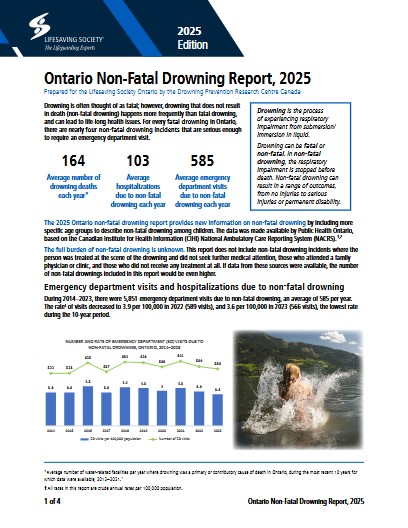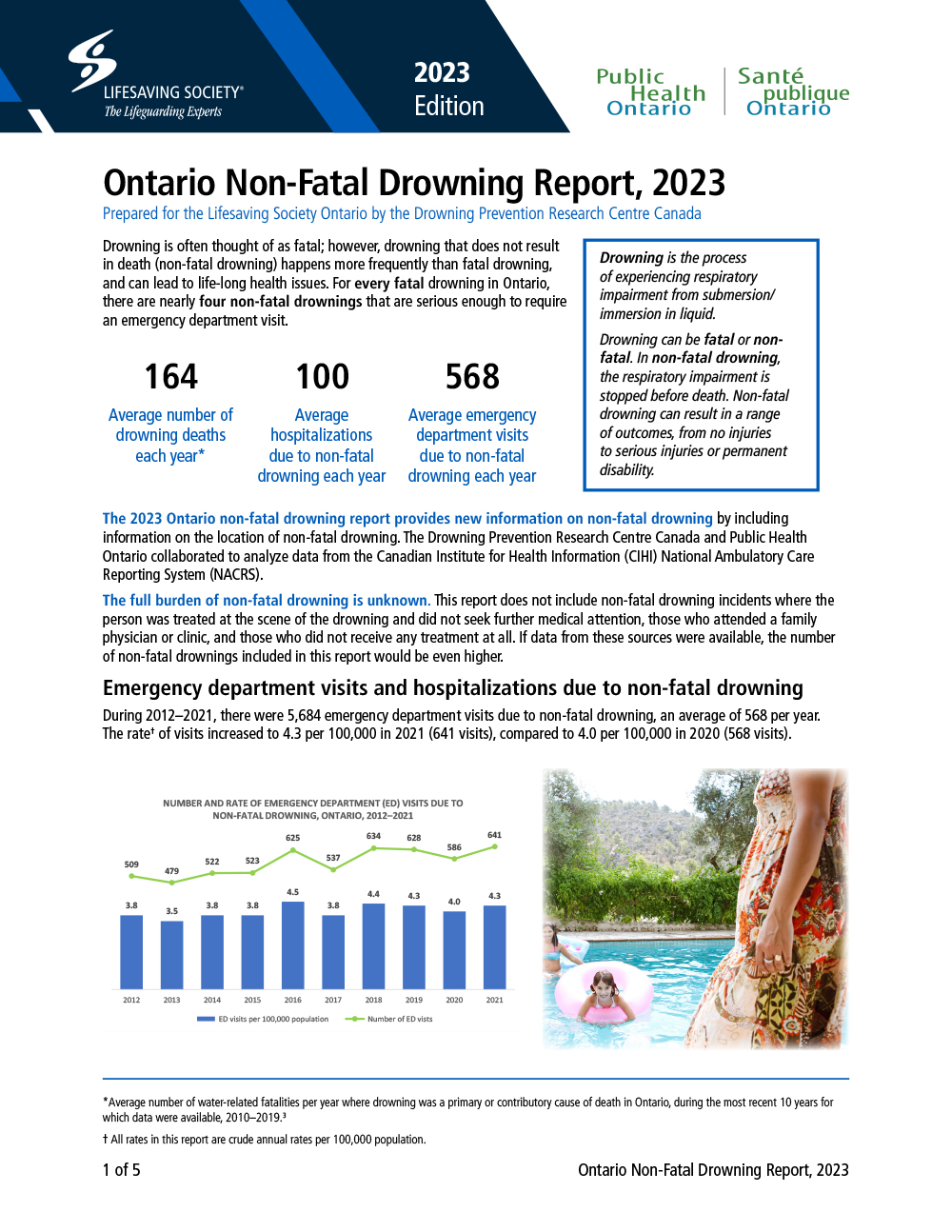Overview of non-fatal drownings in Ontario
Non-fatal drowning
Definition
In non-fatal drowning, the respiratory impairment is stopped before death. Non-fatal drowning can result in a range of outcomes, from no injuries to serious injuries or permanent disability.
While drowning is often thought of as fatal, there are in fact many more non-fatal drownings than drowning deaths each year. People who experience a non-fatal drowning may face serious health issues as a result, often for the rest of their lives.
Non-fatal drowning data is required to describe the true burden of drowning.
Non-fatal drowning
categorization framework
The DPRC is working with global experts on a categorization framework for non-fatal drowning. This will enable more comprehensive reporting on non-fatal drowning and contribute to a better understanding of the full burden of drowning. With this framework, the severity of non-fatal drowning can be categorized based on the degree of respiratory impairment, and morbidity (decline from previous functional capacity) caused by the non-fatal drowning. The following draft framework is currently being tested and refined.
- Involuntary distressed coughing AND
- Fully alert
- Sustained difficulty breathing AND/OR
- Disoriented but conscious
- Not breathing
AND/OR - Unconscious
- No decline
- Some decline
- Severe decline



